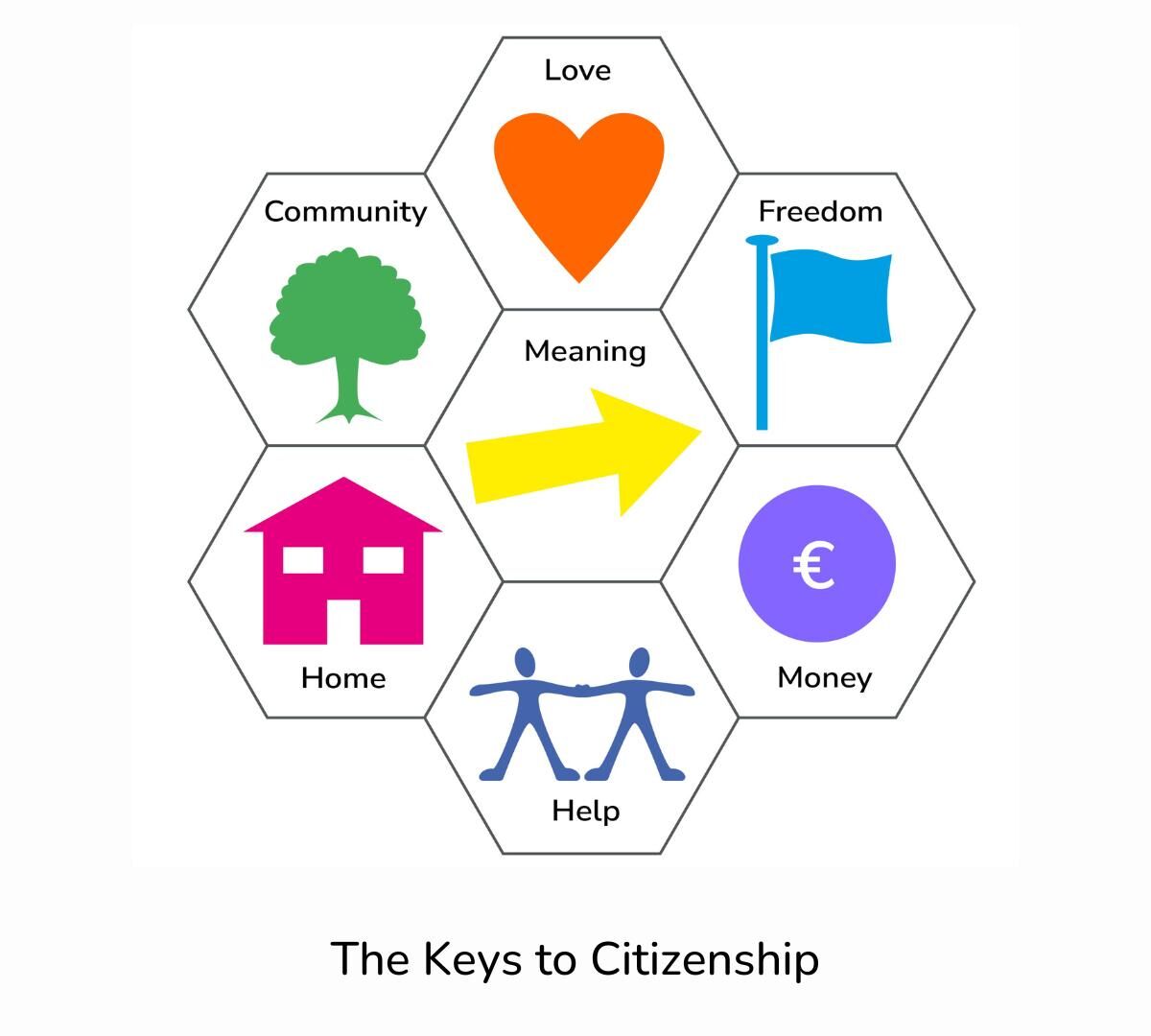The keys to citizenship can help improve services for people with disabilities in many ways.
Author: Mark Humble
During my career working with people with a learning disability, there have been three major ideas about working with people that have impacted me, how I think and my approach to work and the world. Wolf Wolfensberger's ideas around normalisation and social role valorisation, John O'Brien's five accomplishments and Simon Duffy and Wendy Perez's thoughts on citizenship, particularly their Keys to Citizenship.
It is good to see that, over the years, many service and support organisations and indeed government, through NHS England and the Department of Health and Social Care, have actively embraced the work of Wolfensberger and O'Brien. Even if their influence has not always been explicit, it has been revealed in the efforts to change culture and practice and the goal of offering a more personalised approach - however imperfectly. There is at least a desire to ensure that people can live their lives as members of their local communities, seeking the connections they need to live those ‘gloriously ordinary lives’ that Tricia Nicoll has been talking about for so long.
However, I think the keys to citizenship offer a framework or an idea that should resonate with us all. It's not like the work of O' Brien and Wolfensberger who have a very clear focus on people with a learning disability, what the keys to citizenship sets out for me is a framework that says we all want this and largely many of us have this, so shouldn’t this be our aim for everyone?
For those who don’t know, these are the Keys to Citizenship:

I don’t plan to explain the keys to citizenship in this blog, for those interested in the detail I would recommend Simon and Wendy's latest book Everyday Citizenship.
What I am keen to do is to think about and understand how the seven ideas that make up the keys to citizenship can be used to improve the lives of people with a learning disability or autistic people.
The first time, and it was such a long time ago there were only 6 keys, this was before Wendy reminded Simon about the importance of love and connection in everybody's lives. I worked in a local authority and had the task of developing the Councils social care commissioning strategy. The strategy was coproduced with local people using the keys to citizenship as the framework. The strategy tried to set out how the Council would use its resources to support citizenship and if people needed a bit of social care or a personal budget to achieve that then so be it. Supporting citizenship rather than a focus on deficit means looking at the world in a really different way.
Secondly, again in another local authority I led on the development of a contract for social care providers who were commissioned to provide accommodation and social care support for people with a learning disability. As part of the contract and part of the contract management process we wrote into the contract itself that the provider had to show how they as an organisation were supporting people to achieve citizenship through the seven keys, twice a year they had to evidence how they were doing this.
Thirdly, working with someone who had been in hospital for a long time and planning to leave. When thinking about how we would know things were working for this person, we decided to use the keys to citizenship as a measure of how they were living their new life. How did we know what the individual wanted to do in and with their lives? What were their hopes and dreams? What support did they need to make these happen? How were they using their money and resources? Did they have a home or just somewhere to live? Did they have the right help and support that worked for them? Were they living the life they wanted as part of their community? and Were they in a position to have and give love and friendship?
Thinking about someone's life in this way, rather than the traditional focus on time, task, risk and timetables offers a really different perspective and should and can lead to much better outcomes.
If you aren’t aware of the Keys to Citizenship, I would recommend you take a look and think about how they could be used in your organisation or with the people you love and care for, and then write a blog and tell everyone if and how it worked.
The publisher is Citizen Network Research. All Hail Citizenship! © Mark Humble 2024.
Deinstitutionalisation, disability, intellectual disabilities, Keys to Citizenship, social care, England, Article